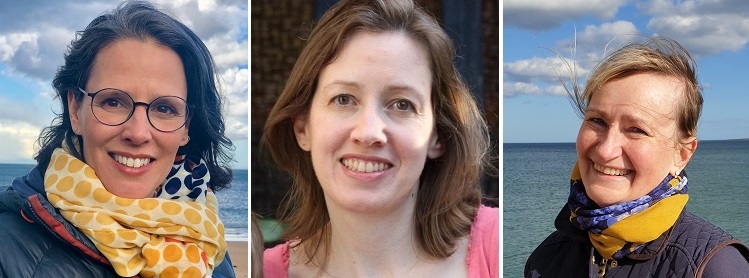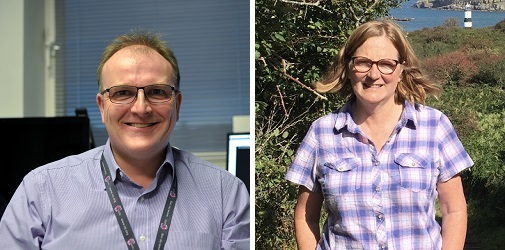Leading St Andrews scientists recognised by the Royal Society of Edinburgh
A world-leading animal cognition expert, a macro-ecologist, a renowned chemist, and a social inclusion expert from the University of St Andrews join an internationally recognised children’s social behaviour expert whose work featured in a ground-breaking Netflix documentary as newly elected Fellows of the Royal Society of Edinburgh (RSE).
The RSE, Scotland’s National Academy, today (Tuesday 30 March 2021) announces 87 new Fellows from across the world of science, the arts, education, business and public life, including five newly elected Fellows from the University of St Andrews. The new Fellows will join the RSE’s current roll of around 1600 leading thinkers and practitioners from Scotland and beyond, whose work has a significant impact on our nation.
Professor Malinda Carpenter, from the School of Psychology and Neuroscience, is among the five new Fellows from the University of St Andrews elected in 2021. Malinda is a Professor of Developmental Psychology who studies social and prosocial development in infants and young children. Her main research topics include sharing experiences (joint attention and joint action), imitation, pre-verbal communication and prosocial behaviour (helping, sharing, considerateness). Malinda’s research featured in the internationally acclaimed Netflix series Babies.

The 2021 Fellows also recognise, for the first time, both the Director and Deputy Director of a leading research institute. Professor Susan Healy, Director of the University’s Centre for Biological Diversity, is elected a Fellow, alongside Deputy Director Dr Maria Dornelas. Professor Healy is a leading animal cognition expert whose research focusses on how ecology and evolution shape the cognitive abilities of animals. Deputy Director, Dr Dornelas, is a macro-ecologist who studies biodiversity change across the planet, with a special interest on coral reefs.
Joining the 2021 Fellows from St Andrews is Professor Douglas Philp from the School of Chemistry, whose research probes the processes that were central to the emergence of life on Earth. By applying a range of experimental and computational methods his laboratory has developed synthetic replicators, molecules that can make exact copies of themselves from appropriate feedstocks.
Also elected a Fellow in the 2021 cohort is Nina Laurie, a Professor of Human Geography, whose research focuses on social inclusion, international development and environmental sustainability, has played a pivotal role in raising the profile of Latin American research within the field of Geography, having worked with marginalised and indigenous people in South America and South Asia for nearly 30 years.

This year’s cohort includes many new Fellows who have made a positive impact during the global Covid-19 pandemic, either as a result of their academic research or through their contribution to arts or for the role they have played in communicating complex information with the public. Those who are elected to the Fellowship have undergone a rigorous assessment of their achievements, professional standing and the contribution they and their work make to wider society.
Professor Dame Anne Glover, President of The Royal Society of Edinburgh, said: “As Scotland’s national academy we recognise excellence across a diverse range of expertise and experience, and its effect on Scottish society. This impact is particularly clear this year in the latest cohort of new Fellows which includes scientists who are pioneering the way we approach the coronavirus; those from the arts who have provided the rich cultural experience we have all been missing; and some who have demonstrated strong leadership in guiding their organisations and communities through this extraordinary time.
“Through uniting these great minds from different walks of life, we can discover creative solutions to some of the most complex issues that Scotland faces. A warm welcome is extended to all of our new Fellows.”
About the RSE: The Royal Society of Edinburgh (RSE) is a leading educational charity which operates on an independent and non-party-political basis to provide public benefit throughout Scotland. Established by Royal Charter in 1783 by key proponents of the Scottish Enlightenment, the RSE now has around 1600 Fellows from a wide range of disciplines. The work of the RSE includes awarding research funding, leading on major inquiries, informing public policy, and delivering events across Scotland to inspire knowledge and learning.
Issued by the University of St Andrews Communications Office.